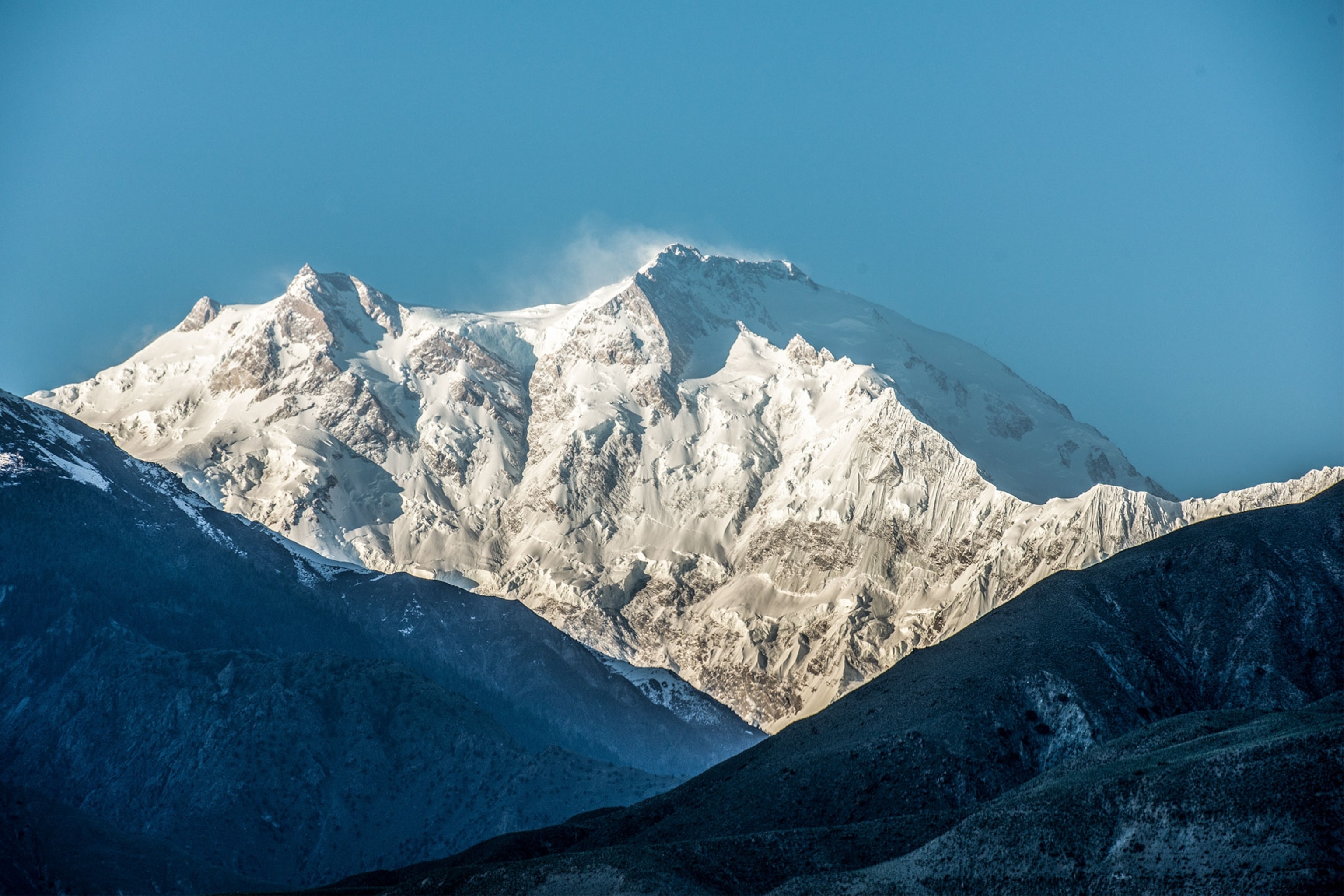'Killer Mountain' Strands Climber as Another Is Rescued
Alpinist Elisabeth Revol was rescued in Pakistan, while her climbing partner Tomasz Mackiewicz is presumed dead.
One of the two climbers who were stranded on the treacherous mountain peak Nanga Parbat, in northern Pakistan, over the past few days was rescued and is recovering in Islamabad. But due to bad weather, his higher altitude, and his weakend condition, the other climber could not be reached by the rescue team and is presumed to have perished.
French climber Elisabeth Revol was located by a team of elite Polish mountain climbers who were looking for her on the 26,660-foot peak, the world's ninth highest. Searches for Revol's companion, Polish climber Tomasz Mackiewicz, had to be called off. On Sunday, the rescue team transported Revol to safety.
A crowdfunding page was set up by British climber Masha Gordon to cover the cost of their rescue. In a post on the funding site, she reported that the first helicopter attempt to pick up Revol had been unsuccessful. Eventually, the team reached her. But they couldn't reach Mackiewicz.
"While Elisabeth is now convalescing in safety in Islamabad hospital with severe frostbites, we mourn Tomek [Tomasz]," Gordon wrote.
The climber is survived by his wife Anna and three young children.

A number of climbing-related deaths on Nanga Parbat over the past two centuries have earned it the nickname "Killer Mountain." Winter is the most dangerous time to attempt a climb because the weather is at its most unpredictable.
A team of elite Polish climbers had recently set out to be the first to summit the mountain K2—at 28,251 feet, the world's second highest peak—in winter. But this week, four of those climbers broke off from that attempt to assist the rescue mission on Nanga Parbat, roughly one hundred miles away, says Michał Leksiński, a spokesperson for the K2 expedition. K2 straddles the Pakistan and China border.
A helicopter flew the four climbers to Nanga Parbat. Seven more climbers from the K2 team are still working on their ascent up the mountain, while two are managing the base camp. That world first attempt carries high risk, as statistics show 25 percent of those who attempt K2—in any season—perish.
Mackiewicz and Revol got stuck at a 24,000-foot marker, where they radioed for help, a representative from the Alpine Club of Pakistan told Reuters.
At that time, Revol was reportedly lucid and attempting to help Mackiewicz descend. Both are experienced climbers, and Mackiewicz was on his seventh attempt to summit Nanga Parbat and Revol was on her third.
In a radio message, Revol reportedly said Mackiewicz was suffering from snow blindness and frostbite.
Snow blindness, or photokeratitis, is akin to having sunburned eyes. It's caused by intense sunlight reflecting off the bright snow. It's unclear where Mackiewicz has frostbite, but it's most common in the fingers and toes. If left untreated, it can eventually cause nerve damage or, in worst-case scenarios, gangrene, which requires amputation.
"The key is to go to them as fast as possible," says Leksiński.
Climbing blogger Alan Arnette described the rescue mission as a "superhuman effort."
"They climbed at a rate of 400 feet or 121 meters per hour at 20,000 feet/6000 meters up a very steep, icy and technical Kingshofer wall," he wrote in a blog post.
He noted that the Polish climbing expedition separately had to temporarily pause their ascent while they wait for the weather to become more stable. He suggests this is a possible factor for why Mackiewicz and Revol met disaster.
In the years the Polish team has been preparing to summit K2, says Leksiński, volatile conditions are something they anticipated. For this reason, news of two imperiled climbers likely won't change their plans.
Whether or not the 13 Polish climbers will be successful remains to be seen. Leksiński says they're not expected to reach the summit until late February or early March.